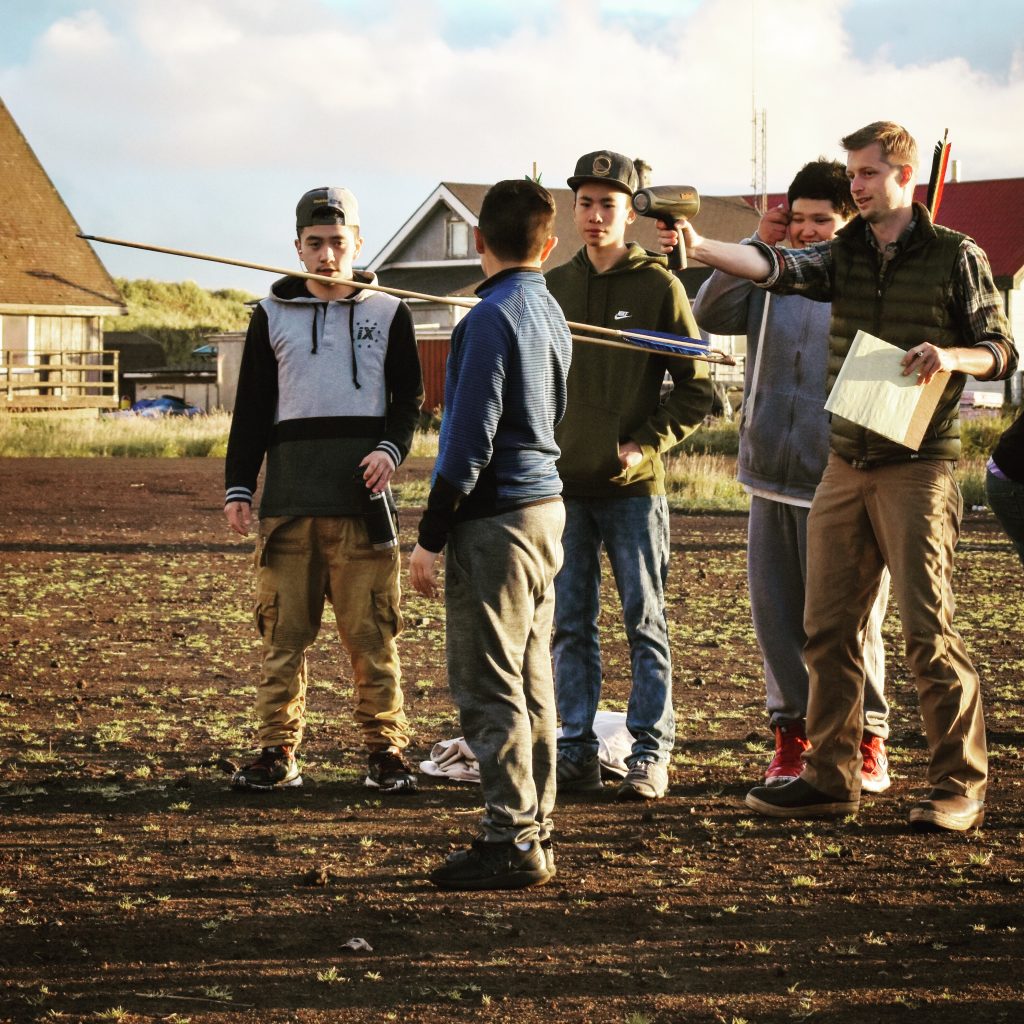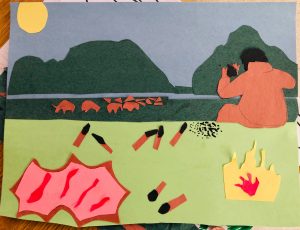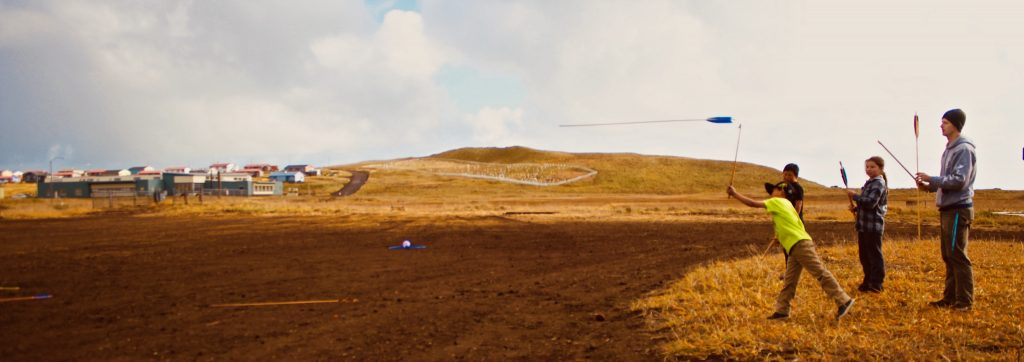Student Teacher
In 2014, Center graduate student Joshua Lynch began working with the Aleut Community of St. Paul Island Tribal Government, St. Paul Island Ecosystem Conservation Office, and the Pribilof School District delivering hands-on, active learning based lectures and demonstrations as part of a multidisciplinary week of place-based education called “Bering Sea Days”. These efforts culminated in […]

In 2014, Center graduate student Joshua Lynch began working with the Aleut Community of St. Paul Island Tribal Government, St. Paul Island Ecosystem Conservation Office, and the Pribilof School District delivering hands-on, active learning based lectures and demonstrations as part of a multidisciplinary week of place-based education called “Bering Sea Days”. These efforts culminated in the development of two 1-hour courses for the University of Alaska System offered on St. Paul Island to high school students of the Pribilof School District. The first course explored the peopling of Alaska via the Bering Land Bridge and environmental shifts in the Bering Sea region since the last Ice Age using data generated from archaeological and ecological research from regional and local contexts. After establishing a baseline understanding of archaeological method and theory, the second course delivered on the island in 2018 focused on the role of experimental archaeology to investigate the function of ancient tools. Students constructed their own spear thrower and dart sets and then tested these tools, carefully collecting velocity and accuracy data following methodology similar to what Lynch is using in his dissertation.

High School Students’ visual interpretation of a late Pleistocene Alaskan hunting overlook based on archaeological site assemblage data.

High School Students didn’t get to have all the fun, younger students were also eager to try out the spear throwers on the community ball field.
